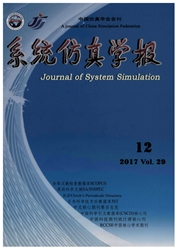

 中文摘要:
中文摘要:
根据小波分析理论,建立了月径流序列的小波分解预测校正模型。该模型通过小波分解方法将月径流非平稳时间序列分解为多个细节信号序列和一个逼近信号序列,然后运用平稳时间序列的ARMA模型对各信号序列分别进行预测,最后再对各序列预测结果的和进行校正.以长江的宜昌站和寸滩站的月径流资料为例,分别采用ARMA模型、季节性ARIMA模型、BP神经网络模型以及所建立的小波分解预测校正模型进行模拟预测,并讨论了小波分解尺度数对小波分解预测校正模型的影响。结果表明,所建立的小波分解预测校正模型较其它模型具有更高的预测精度,并且尺度数对月径流序列模拟预测的效果没有显著的影响。
 英文摘要:
英文摘要:
Based on wavelet analysis theory, a wavelet predictor-corrector model was proposed for the simulation and prediction of monthly discharge time series. In this model, the non-stationary time series of monthly discharge was decomposed into an approximated time series and several stationary detail time series according to the principle of wavelet decomposition. Each one of the decomposed time series was predicted respectively through the ARMA model for stationary time series. Then the correction was conducted for the sum of the prediction results. Taking the monthly discharges at Yichang station and Cuntan station of Yangtze River as an example, the monthly discharges were simulated by using ARMA model, seasonal ARIMA model, BP artificial neural network model and the wavelet predictor-corrector model proposed, respectively. And the effect of decomposition scale for the wavelet predictor-corrector model was also discussed. It is shown that the wavelet predictor-corrector model has higher prediction accuracy than the other models and the decomposition scale has no obvious effect on the prediction for monthly discharge time series in the example.
 同期刊论文项目
同期刊论文项目
 同项目期刊论文
同项目期刊论文
 期刊信息
期刊信息
